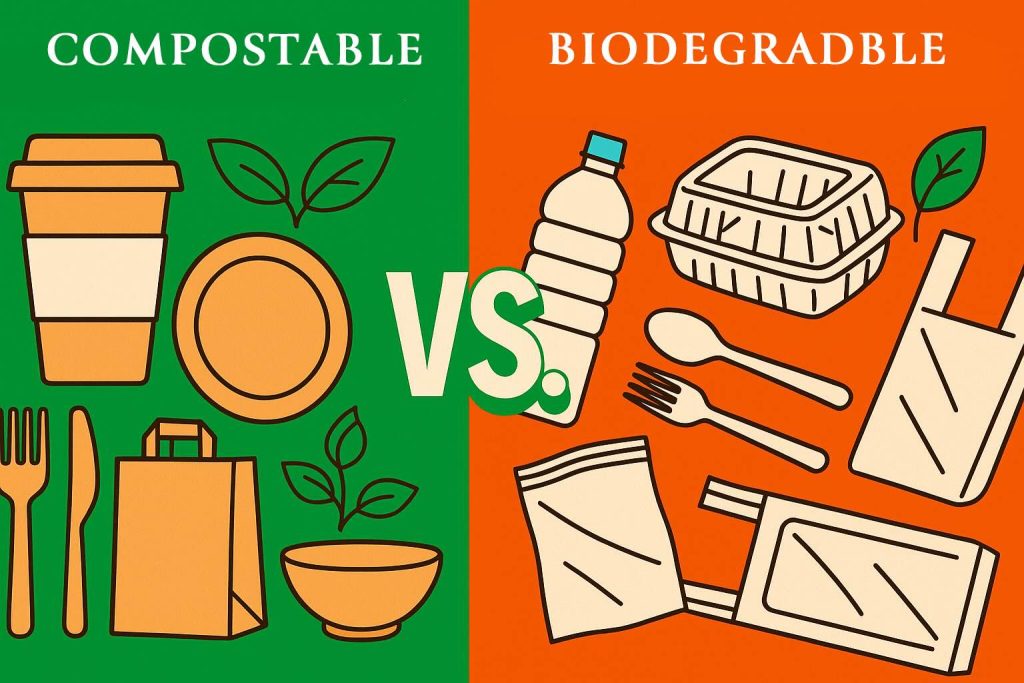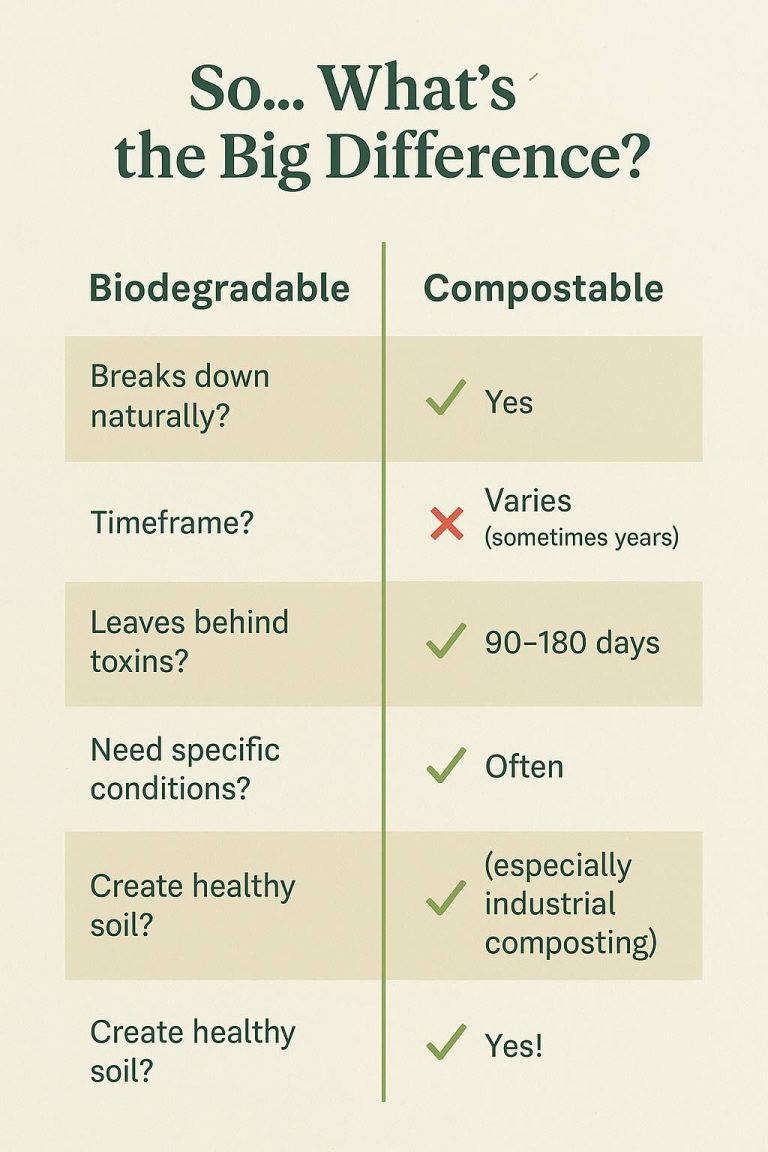
With sustainability now a major part of how we shop, eat, and live, the words “compostable” and “biodegradable” are popping up everywhere—from food packaging and utensils to cleaning products and mailers. But what do these terms really mean? Are they interchangeable? And how can you be sure you’re choosing the right eco-friendly option?
At Simply Clean, we’re committed to transparency, sustainability, and making eco-living easier for everyone. That starts with education. So, let’s break it down in simple terms.
What Does Biodegradable Mean?
A biodegradable product is something that can break down naturally into non-toxic elements over time, thanks to bacteria, fungi, and other microorganisms. This process may sound great—and in many cases, it is—but here’s the catch: “biodegradable” doesn’t always mean environmentally friendly.
A biodegradable plastic straw, for instance, might eventually decompose, but it could take years—even decades—depending on conditions like heat, light, moisture, and the environment in which it ends up. Worse, if that straw goes to a landfill, it may not biodegrade at all due to the lack of oxygen and sunlight in those tightly packed trash heaps.
So while the term “biodegradable” sounds good, it’s often too vague. Many products labeled as biodegradable don’t break down fast enough or leave behind harmful microplastics.
What Does Compostable Mean?
Compostable products, on the other hand, are held to a higher environmental standard. When something is compostable, it means it can break down into nutrient-rich compost—a valuable soil enhancer—under the right conditions and within a specific timeframe (usually 90–180 days in industrial composting facilities).
Compostable products must meet strict certifications like ASTM D6400 in the U.S. or EN 13432 in Europe, ensuring they leave no toxic residue and return to the earth as clean, usable organic matter.
At Simply Clean, we specialize in certified compostable products that are designed to break down safely and effectively—whether it’s our compostable cutlery, mailers, or food containers. Unlike many “biodegradable” alternatives that end up lingering in landfills, our products are made to complete the natural cycle—from earth, back to earth.

In short:
🟡 Biodegradable is a broad, unregulated term.
🟢 Compostable is specific, measurable, and safe for the planet.
Why This Matters at Simply Clean
At Simply Clean, we believe small choices lead to big change. That’s why all of our compostable and biodegradable products are carefully curated, tested, and backed by third-party certifications. Our goal is to offer sustainable alternatives that are not just better than plastic—but better for the earth, period.
When you choose Simply Clean’s compostable products, you’re helping reduce landfill waste, limit pollution, and support a circular, regenerative economy. Whether you’re a business owner looking for eco-conscious packaging or a household seeking greener solutions, we’ve got you covered.
Tips for Smart, Sustainable Shopping
- Look for certifications like ASTM D6400, BPI (Biodegradable Products Institute), or TUV OK Compost.
- Avoid vague claims like “eco-friendly” or “green” without supporting info.
- Understand your local waste system—not all areas have commercial composting, so make sure you know how to dispose of compostables properly.
- Support companies like Simply Clean that are upfront about product materials and life cycles.
Final Thought
The difference between biodegradable and compostable may seem small, but it’s big for the planet. Compostable products are the gold standard in eco-packaging and waste reduction—and they’re at the heart of what we do at Simply Clean.
Make the switch. Stay informed. Choose compostable.
And let’s work together for a cleaner, greener tomorrow.



